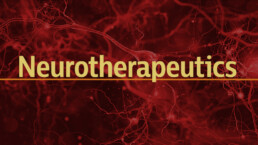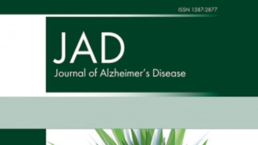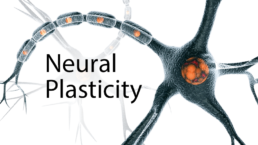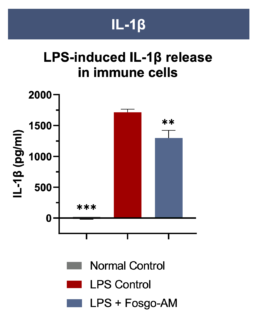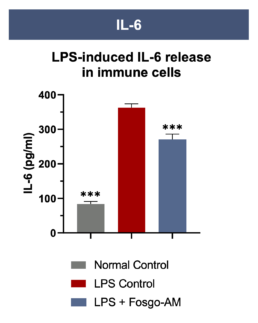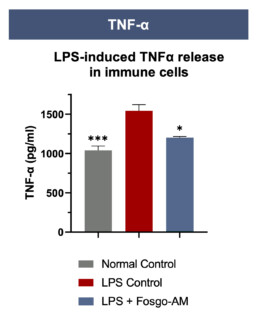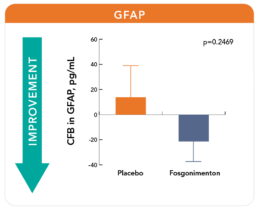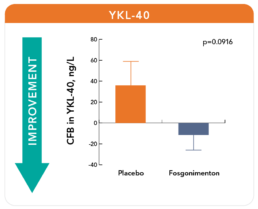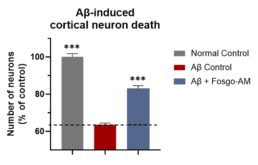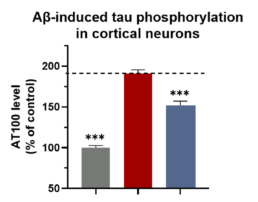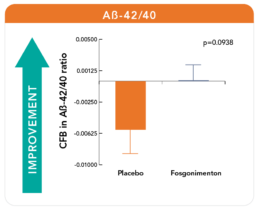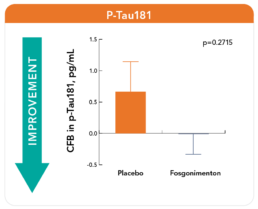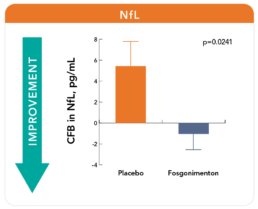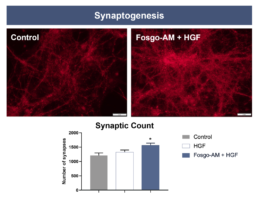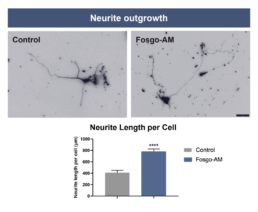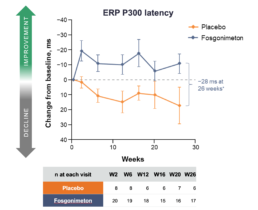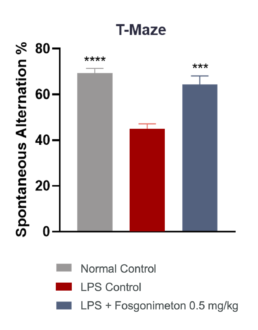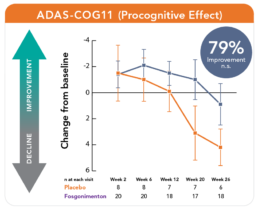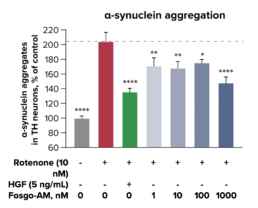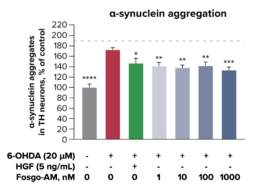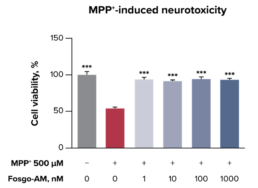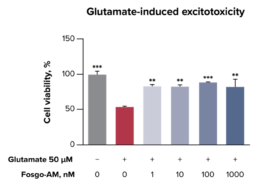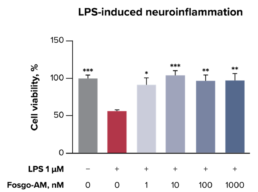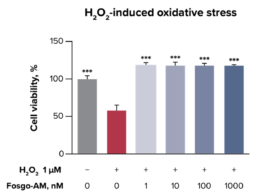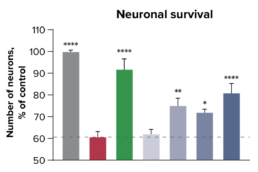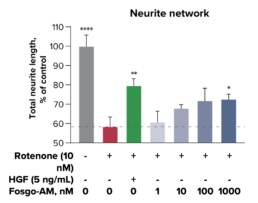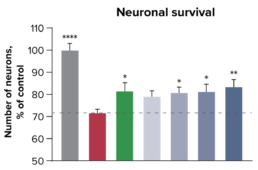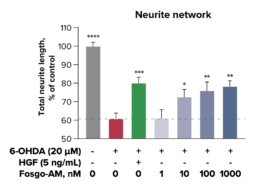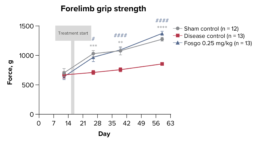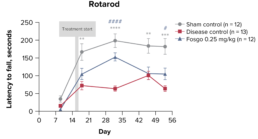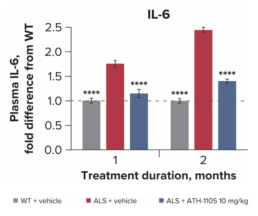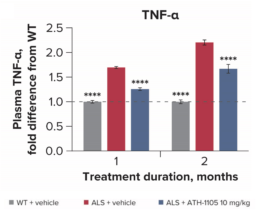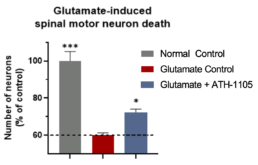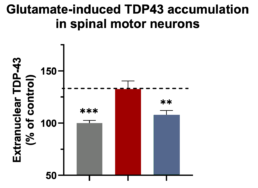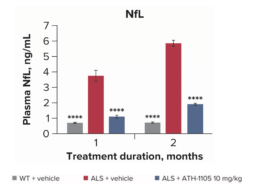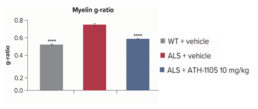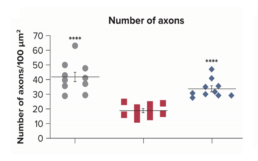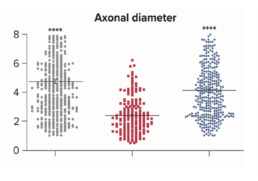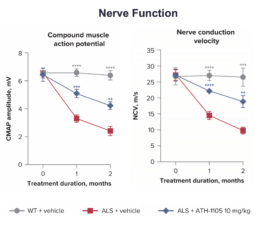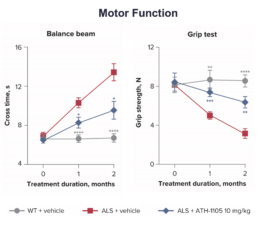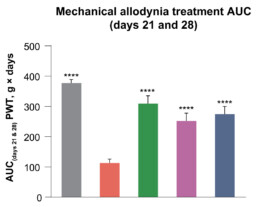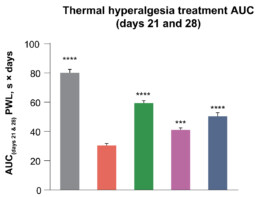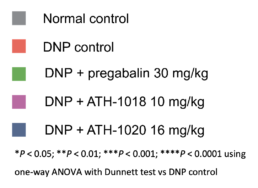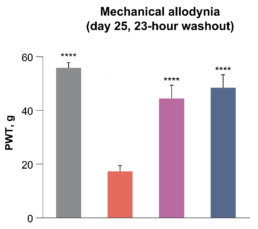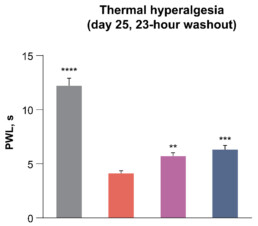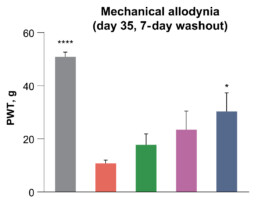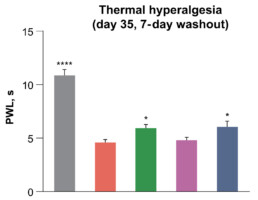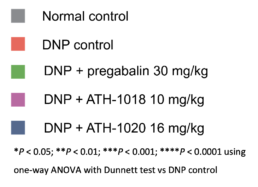Drug Design Approach
Developing Small Molecule Therapeutics for a Broad Range of Neurodegenerative Diseases
Our small molecules are designed to restore neuronal health by enhancing the naturally occurring neurotrophic hepatocyte growth factor (HGF) system. We have shown preclinically that enhancing the HGF signaling system has the potential to reduce inflammation, slow neurodegeneration, and provide neuroprotection. Subject to ongoing clinical testing, we believe our small molecules have the potential to modify the course of disease for patients across a broad range of neurodegenerative diseases.
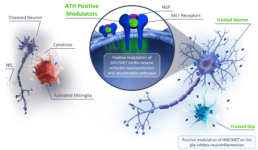
Targeting the Neurotrophic HGF System
Our novel approach may offer the ability to both protect and repair neuronal networks from neurodegenerative diseases.
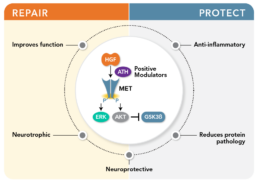

Proposed mechanism of action for ATH product candidates.
Select Scientific Publications on neurotrophic HGF and its Role in Neurodegenerative Diseases
Click below to see links. By clicking on the links below, you will leave Athira’s website. Athira does not endorse or update information on such third-party websites.
- HGF and MET in the Brain and Neurological Disorders Review (Desole et al, 2021)
- HGF General Review (Nakamura and Mizuno et al, 2010)
- HGF Neurotrophic Review (Funakoshi and Nakamura, 2011)
- Genetic Signatures of the Adult Human Brain (Hawrylycz et al, 2015)
- Neurotrophic Effects of HGF after Injury (Shang et al, 2011)
- HGF and NMDA Receptor Activity (Akimoto et al, 2004)
- HGF Improves Synaptic Localization of NMDARs (Akita et al, 2008)
- HGF Roles in Immunomodulation (Molnarfi et al, 2015)
- HGF Overexpression Improves Learning and Memory (Kato et al, 2012)
- HGF Therapy is Beneficial in AD Mouse Model (Takeuchi et al, 2008)
- MET is Down-Regulated in AD (Hamasaki et al, 2014)
- Alzheimer’s Disease: Synapses Gone Cold (Koffie et al, 2011)
- Glial Cells Express HGF to Promote Neuronal Survival and Suppress Neuroinflammation (Nakano et al, 2017)
- HGF Enhances Dendritic Branching and Modulates NMDA Receptor Activity (Tyndall et al, 2007)
- HGF Attenuates Neuropathic Pain in Animal Models (Nho et al, 2018)
- HGF Improves Behavior in Animal Models of Anxiety (Isogawa et al, 2005)
Select Athira Scientific Publications
By clicking on the links below, you will access PDF reprints of peer-reviewed publications made available by scientific journals via open-access.
Alzheimer’s
Fosgonimeton improves markers of inflammation
Preclinical
Data presented at Athira R&D Day 2022 and published in Johnston et al., 2022
Clinical Observations
Data presented at Athira R&D Day 2022 and CTAD 2022
Fosgonimeton improves hallmarks of Alzheimer’s disease
Preclinical
Data presented at Athira R&D Day 2022
Clinical Observations
Data presented at Athira R&D Day 2022 and CTAD 2022
Fosgonimeton reduces markers of neurodegeneration
Preclinical
Data presented at Athira R&D Day 2022
Clinical Observations
Data presented at Athira R&D Day 2022 and CTAD 2022
Fosgonimeton promotes neurotrophic effects
Preclinical
Data presented at Athira R&D Day 2022 and published in Johnston et al., 2022
Clinical Observations
Data presented at Athira R&D Day 2022 and AAIC 2022
Fosgonimeton demonstrates improved cognition and function
Preclinical
Data presented at Athira R&D Day 2022 and published in Johnston et al., 2022
Clinical Observations
Alzheimer’s disease assessment scale-Cognitive subscale 11 (ADAS-Cog11) measurements showed a directional improvement of -3.3 points (79%) over placebo over 6 months in patients without background therapy
Alzheimer’s disease cooperative study-Activities of daily living 23 (ADCS-ADL23) measurements showed a directional improvement of +2.1 points (51%) over placebo over 6 months in full study population
Data presented at Athira R&D Day 2022 and AAIC 2022
Parkinson’s
Fosgonimeton improves markers of inflammation in preclinical models
Data presented at Athira R&D Day 2022 and published in Johnston et al., 2022
Fosgonimeton reduces Parkinson’s protein pathology in dopaminergic neurons
Data presented at Athira R&D Day 2022 and Neuroscience 2022
Data presented at Neuroscience 2022
In preclinical models, fosgonimeton protects against neurotoxic insults and promotes dopaminergic neuron health
Fosgonimeton promotes survival of cortical neurons challenged with neurotoxic insults
Data presented at Neuroscience 2022
Fosgonimeton promotes dopaminergic neuron health
Data presented at Neuroscience 2022
Fosgonimeton promotes synaptogenesis and neurite outgrowth in hippocampal neuron cultures
Data presented at Athira R&D Day 2022 and published in Johnston et al., 2022
In an animal model of Parkinson’s disease, fosgonimeton improves several motor behavior deficits
Grip strength is improved after fosgonimeton treatment
Data presented at Athira R&D Day 2022 and Neuroscience 2022
Fosgonimeton improves motor function and coordination
Data presented at Neuroscience 2022
ALS
ATH-1105 significantly improves markers of inflammation in preclinical models of ALS
Data presented at Athira R&D Day 2022 and MNDA 2022
ATH-1105 significantly reduces protein hallmarks of ALS and enhances neuron survival in preclinical models
Data presented at Athira R&D Day 2022
ATH-1105 significantly protects against degeneration and demyelination in a preclinical model of ALS
Reduced marker of neurodegeneration
Data presented at Athira R&D Day 2022 and MNDA 2022
Protection against axon degeneration and demyelination
Data presented at Athira R&D Day 2022 and MNDA 2022
Neurotrophic effects with ATH-1105 coming soon
Decreases in biomarkers significantly correlate with improvements in cognitive and functional measures.
Data presented at Athira R&D Day 2022 and MNDA 2022
Neuropathic Pain
ATH positive modulators significantly reduced pain behaviors that persisted even after extended washout periods
Significantly reduced pain behaviors over the treatment period
Data presented at Neuroscience 2022
Reduction in pain persisted after extended drug washout periods
Data presented at Neuroscience 2022

